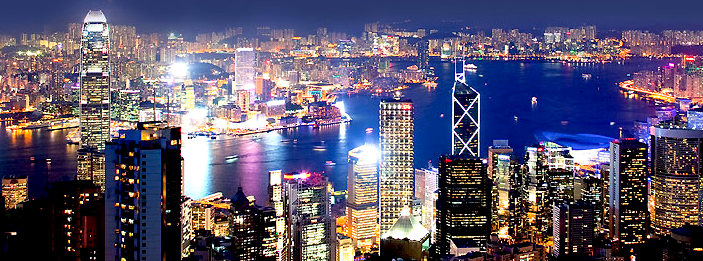
Translated by Andrew Vanburen from 地緣政治勢不穩,港股2月下試22,400
IF YOU HAVE enough sparks, you’re sure to get a prairie fire. I don’t think many people could have foreseen the shocking recent sociopolitical turmoil that began in Tunisia and is currently sweeping across the Middle East and North Africa.
Just a few short weeks ago, global markets had been looking to the ongoing economic recovery in most of the industrialized countries as the primary barometer upon which to gauge a return to some semblance of vibrancy in stock markets around the world.
The relatively low Chicago Board Options Exchange Market Volatility Index (VIX) had helped the Dow Jones see highs not seen in two-and-a-half years, suggesting that optimism was returning to the land.
However, crises always strike when things seem calmest. The firestorm that began wreaking havoc across the region from country to country with domino-like effect at first seemed unrelated to things here in Hong Kong, as North Africa is on the other side of the planet, and investors in local markets initially took the disturbing – but faraway news – in stride.
But after looking more closely at the strife, it was soon made all too painfully evident that the world has become far more interconnected than ever before. Technological advances make it impossible for any corner of the globe to live in a virtual vacuum anymore, and the intricate financial and trade matrix that links regions together reinforces our mutual interdependence now more than ever.
The US, for example, is now clearly increasingly worried about its oil procurement posture and military footing in the now-restive Middle East, and both may be under increasing threat. But this instability is not just a worry for Washington as the region is a huge and crucial apple cart, and upsetting it will have global implications for everyone.
Investor sentiment took a short-term rollercoaster ride from palpable optimism last month to what can only be described as a sense of pending gloom and doom, backed by a recent downturn in European markets, a steady climb of gold to over 1,400 usd/ounce (one of the most reliable barometers of global insecurity) and the likelihood that oil could stay above 90 usd/barrel for the foreseeable future. This can only mean the US market can’t maintain its current bull run for much longer and a sobering correction is lurking ominously in the shadows.

But of course, a deep correction in the US market is not necessarily written in stone. And given its relentless surge so far this calendar year, a correction or two would likely happen regardless of the turmoil in oil-rich regions. I believe that at the end of the day, the major factor driving – or dragging on – the US stock markets will be the relative health of the economy there.
Indeed, recently improved job market and macro data from the US along with the gradually improving sovereign debt crisis in the EU had given most market watchers newfound confidence that the global economic downturn had seen its worst days.
It is true that compared to 2010, everyone should be more upbeat on 2011. There seemed to be a global consensus that there was a gradual recovery in North America, the EU and Japan, but it was still progressing at a very slow pace. This necessitated a credit loosening policy from respective central banks which of course inflated assets globally with all the new money circulating through the system.

But with uneven recovery and disproportionate growth around the world – and interest rate disparities – the result is often grossly different prices for similar products and services around the world, which leads to bubbles and speculative activity. Therefore, another shuffling of the global financial system’s deck of cards is necessary in order to bring about long-term stability. So at least for the first half of this year, the main theme for markets worldwide will likely be the state and rate of the ongoing recovery in the industrialized world.
But this situation may not be sustainable over the long term. It is likely that around mid-year, investors – that most impatient of animals – will get antsy and anxious about the slow pace of recovery and doubts will resurface. So the asset price inflation enjoyed now may soon disappear and “break even” for the year when all the chips are cashed in. It’s not hard to understand why, for when the slow but steady global economy progresses apace, central banks will once again raise rates to prevent inflation. But investors will cry foul because they will not be convinced that the economic rebound is “over-fast.”

In summary, the global economy should continue on its recovery pace this year, but this does not necessarily translate into healthy markets.
The recovery, and its momentum, is only one factor in a long laundry list of considerations for investors.
Actually, they are most worried about asset price fluctuation, because prices here are potentially the most volatile.
Also, individual investor confidence in consensus forecasts – by sector or region – are also important, and often are based more on sentiment than economic reality.
With this in mind, we saw that after the US Federal Reserve Board in November announced its second quantitative easing (QE2), the benchmark Hang Seng Index still managed to find traction at the 23,000 level.
But all things considered, it would not be a shock to see the Index test 22,400 points by end-month.







